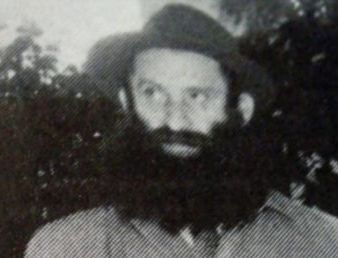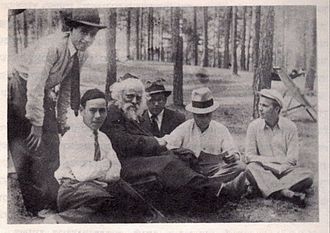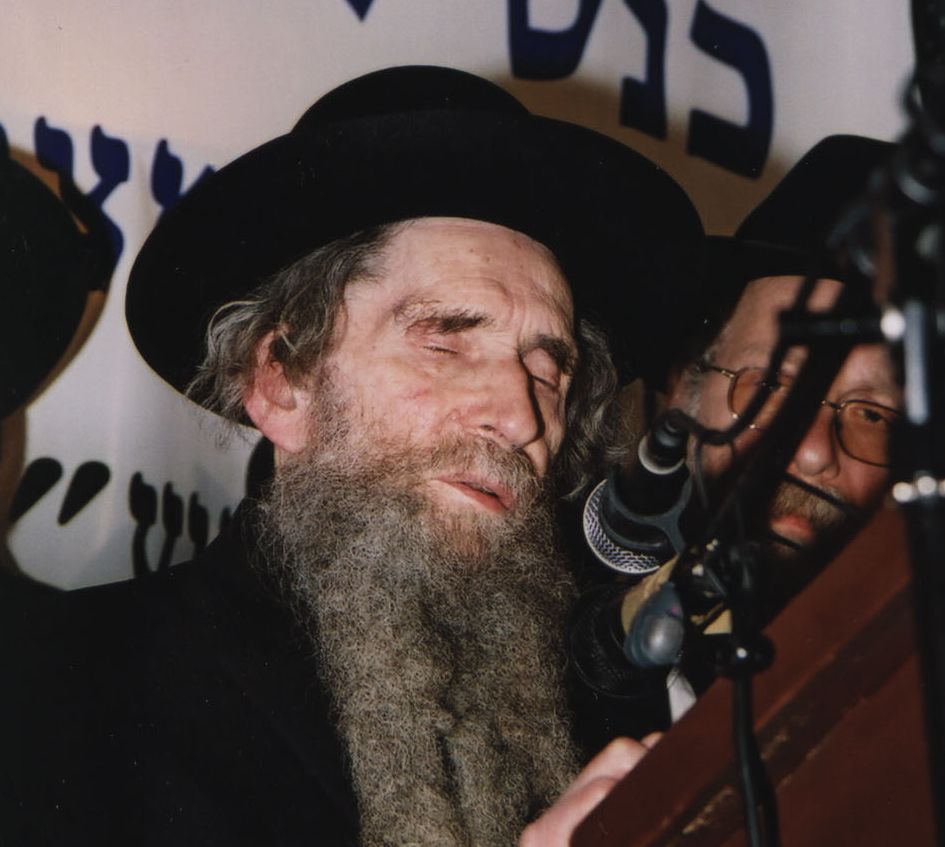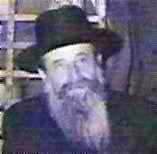| | NEWS
A Reiner Mentsch, A Reiner Torah: HaRav Moshe Soloveitchik zt'l
Adapted by Moshe Musman
As a young man

Rav Wolff Rosengarten Speaks to Yated Ne'eman about his friend and colleague HaRav Moshe Soloveitchik zt'l, in honor of his first yahrtzeit. He was niftar 19 Iyar, 5755. This was first published in 5756 (1996).
Adapted by Moshe Musman
For Part II of this series click here.
Introduction
Rav Wolff Rosengarten is a highly esteemed talmid chochom and a pillar of the Jewish community in Zurich. In his youth, he both witnessed and participated in the world of the European yeshivos. Before the war he learned in the yeshivos of Montreux, Telz (where he was one of the outstanding talmidim of the gaon HaRav Avrohom Yitzchok Bloch) and Kamenetz. He was also close to Reb Chaim Ozer Grodzensky.
During the war years, he was very active in rescue work. One of his achievements was the procurement of a passport for HaRav Elchonon Wassermann zt'l. The passport was unfortunately impounded by the Swiss authorities, in whose archives it remains to this day.
Rav Rosengarten first met HaRav Moshe Soloveitchik zt'l during the war and ever since then, their paths were closely intertwined. Rav Rosengarten was one of the leading members of the board of the yeshiva which Rav Soloveitchik opened in Lucerne and he has been a staunch supporter of the yeshiva for many years.
He consulted HaRav Soloveitchik about all his own affairs, and the two of them worked in close partnership on every public venture which Reb Moshe zt'l undertook. The cooperation between them was so fruitful and their relationship grew so close that Reb Moshe zt'l once remarked, "Reb Wolff is closer to me than a brother!"
In a conversation with Yisroel Friedman, an editor of the Hebrew Yated, Rav Rosengarten shared his own thorough acquaintance with the story of Reb Moshe's life. The following biographical article is based on Reb Wolff Rosengarten's recollections.
From East To West
Reb Moshe Soloveitchik was the son of HaRav Yisroel Gershon Soloveitchik zt'l, eldest son of Reb Chaim zt'l and a brother of the Brisker Rov zt'l. The years of his childhood were not easy. Poverty was the constant companion of all the Jews of Brisk and its presence was especially felt in the homes of the Soloveitchik families.
He related how a poor man had once come asking for a slice of bread. Reb Moshe's mother told him that there was no bread, which was true since the little bread that remained had been set aside for the children's evening meal. Reb Moshe's father however, was unable to reconcile himself to this response and he instructed the young Moshe to climb into the house through a window and bring out the meager piece of bread they had.
Reb Moshe grew up in Brisk with his father and uncle, with the living example of their geonus and their tzidkus constantly before his eyes. From an early age, he radiated the unique grace and charm that was noticed by all who met him in later life.
In Brisk, he learned in the yeshiva of the gaon HaRav Moshe Sokolovsky zt'l, the author of Imrei Moshe. He went on to learn in Kamenitz, under Reb Boruch Ber, his grandfather's renowned talmid. However, he did not remain there long.
Rav Boruch Ber with talmidim

The bochurim related that this was because of the tremendous honor which the rosh yeshiva, Reb Boruch Ber, would accord to members of his great teacher's family. (For example, Reb Boruch Ber once stood up for a granddaughter of Reb Chaim.) The humble bochur from Brisk was unable to remain in a yeshiva where he was subjected to this kind of distinction. He returned to his father's home in Brisk, where he continued to develop in Torah and yiras Shomayim.
Reb Moshe first arrived in Switzerland in 1937, as part of a group which included the gaon HaRav Aharon Leib Shteinman, who is also a native of Brisk. They had departed from Poland after receiving draft notices from the Polish army. Since it was hardly possible to conduct oneself as a religious Jew in the Polish army, let alone to devote oneself to learning Torah, they utilized the fact that theirs' was a reserve unit that had not yet been posted, to enable them to escape from Poland.
Rav Rosengarten points out the wondrous hashgacha in the circumstances that led to Reb Moshe's departure from Eastern Europe before the war began, thus preserving him for the role he later filled in establishing new Jewish communities in postwar Western Europe. He notes that similarly miraculous escapes were made by each one of the gedolim who survived the war and later tended the ravaged remnants of European Jewry, who escaped the threat of physical annihilation only to have their spiritual survival imperiled by the Zionists' attempts to effect a complete break with the past. After their arrival in Switzerland, the refugees learned in HaRav Boutchko's yeshiva in Montreux.
HaRav Aharon Shteinman

As the storm clouds darkened over the skies of Europe, the Swiss Government set up labor camps where foreign nationals were interned. Although unused to hard physical labor, Reb Moshe used to finish his own work quota and then go to fill in for those too weak or infirm to perform the tasks that had been assigned to them.
The officer in charge of the camp was greatly impressed with the young refugee rabbi from Poland. Although he was cruel and heartless in his treatment of the camp inmates, he could still discern the spiritual refinement that emanated from this Jew. He would greet Reb Moshe each day, wishing him a good morning. He once remarked that when Reb Moshe did not return his greeting, on account of his displeasure at something he had done, he would be dogged with ill fortune throughout that day.
Even under the harshest of conditions, Reb Moshe upheld his customary halachic stringencies, taking particular care over kashrus. With water in the camp being apportioned in rations, every drop had to be kept for necessities. The two camp inmates who were nonetheless particular about netilas yodayim each morning were Reb Moshe and HaRav Shteinman.
There is a well known story from this period that shows both the versatility and the deep concern for his fellow Jews that was typical of Reb Moshe. The activities of a missionary among the internees were giving no little cause for concern. The offers of generous financial help and support which were held out by the man to the downtrodden inmates were liable to lead to their ensnarement.
In a move that was highly original and certainly not given to imitation, Reb Moshe befriended the man and engaged him in lengthy conversations in the course of which they discussed their world outlooks and theological standpoints. Preferring to concentrate on netting the Polish rabbin, the missionary left the other Jewish internees alone thus rendering Reb Moshe's mission a success.
New Beginnings
At the war's end, thousands of Jews were left stranded in Europe, homeless, friendless and almost without a hope for the future. A large number of children reached Switzerland and a group of about a hundred of them arrived at the holiday resort of Engelberg, physically and spiritually broken, while Reb Moshe was staying there.
Reb Wolff recalls Reb Moshe's efforts on the children's behalf. He spoke to them, encouraged them, saw into their broken hearts, cared for their needs with his own hands and offered them guidance. After years of silence, the children were able to cry, Reb Wolff related, as he himself struggled to hold back the tears.
Arriving in Eretz Yisroel in 1945, Reb Moshe learned in the yeshiva of Lomza, which had been reestablished in Petach Tikva. During this period he grew close to the Chazon Ish, to whom he would henceforth refer as `mori verebbi.' When asked on one occasion what the reason was for his great estimation of Reb Moshe, the Chazon Ish replied, "Er iz doch a reiner mentsch! (He is a clean, untainted person!)"
After a period which he spent — at the recommendation of the Chazon Ish — with the Jewish rescue groups that were then at work in several European countries, Reb Moshe returned to Switzerland. In 1949, he married the daughter of Rav Shmuel Zanvil Neumann z'l, of Lugano.
He and his wife initially settled in Switzerland, although Reb Moshe still hoped to be able to settle in Eretz Yisroel. Gedolim who visited the country at this time recognized the crying need for the establishment of a Swiss yeshiva that would breathe new spirit into Jewish religious life there. Reb Wolff recalls how both the Rebbe of Satmar zt'l and HaRav Yechezkel Sarna zt'l, who had been his guest, encouraged him to set up a yeshiva.
A greater problem than the lack of teachers however, was the lack of bochurim who would sit down to learn. For a bochur to spend even just a year or two learning full time, was almost unheard of in those days. At the mention of Reb Moshe's having founded the yeshiva, Reb Wolff qualified this assertion — as he recalled his friend's great love of truth and hatred of any falsehood and inaccuracy — by saying that Reb Moshe did not actually set up the yeshiva himself, rather, it was established around him. A committee was organized and under the guidance of gedolei Torah, the yeshiva opened in 1953 with six bochurim. Certainly though, concedes Reb Wolff, Reb Moshe was the yeshiva's spiritual founder.
Soon afterwards, Reb Moshe was forced by the Swiss authorities to leave Lugano, on account of his alien status. He travelled to Eretz Yisroel only returning to Switzerland later on. Meanwhile, in Lucerne, a building had been obtained for the yeshiva's use. (Lucerne is situated in a different canton from Lugano and different residential bylaws were in force there.) Although it was decided that the yeshiva would transfer to Lucerne, Reb Moshe asked Reb Wolff to travel to Eretz Yisroel and seek a rosh yeshiva to replace him.
During the month he spent searching, Reb Wolff indeed found many highly suitable and highly qualified candidates. As most of them were talmidim of the Mir yeshiva, the advice of the mashgiach, HaRav Yechezkel Levenstein zt'l, who had not yet taken up residence in Bnei Brak, was sought. Reb Chatzkel made his consent to any appointment conditional upon its receiving the approval of HaRav Yechezkel Sarna, the rosh yeshiva of Chevron Yeshiva.
HaRav Yechezkel Sarna

HaRav Sarna listened in silence as Reb Wolff read out his list of candidates to head the yeshiva in Lucerne and remained silent after Reb Wolff had finished. He consistently refused to respond to Reb Wolff's entreaties that he give some indication of his preference. Reb Wolff eventually realized that HaRav Sarna's silence in fact constituted his response. "If you have Reb Moshe," he seemed to be saying, "you don't need to consider anybody else. If a godol beTorah is at your service, why look any further?"
HaRav Sarna saw that Europe needed Reb Moshe's presence. Perhaps he conveyed his decision through the medium of silence out of deference to Reb Moshe's personal wish to settle in Eretz Yisroel.
Reb Moshe himself once defined an odom godol, a great man, as being someone who is capable of rising above his own personal desires and ambitions. While this seems self evident where material desires are involved, a truly great man will respond selflessly to a public or other worthy need, even when it is not in accordance with the spiritual goals he has set for himself.
It was not Eretz Yisroel's material attractions that drew Reb Moshe there. He yearned for the opportunities for spiritual growth which Europe was unable to provide. So serious had his intention to settle in Eretz Yisroel been that he had been conducting himself like a ben Eretz Yisroel as regards making kiddush and havdoloh on Yom Tov Sheini (presumably, only from the time of his first visit there).
However, in a move that was typical of his utter selflessness when the needs of others were concerned, he made what was the nonetheless difficult decision to return to Switzerland. The country simply had to have a yeshiva and a yeshiva needs a rosh yeshiva. He could not leave it without one.
End of Part I
|




